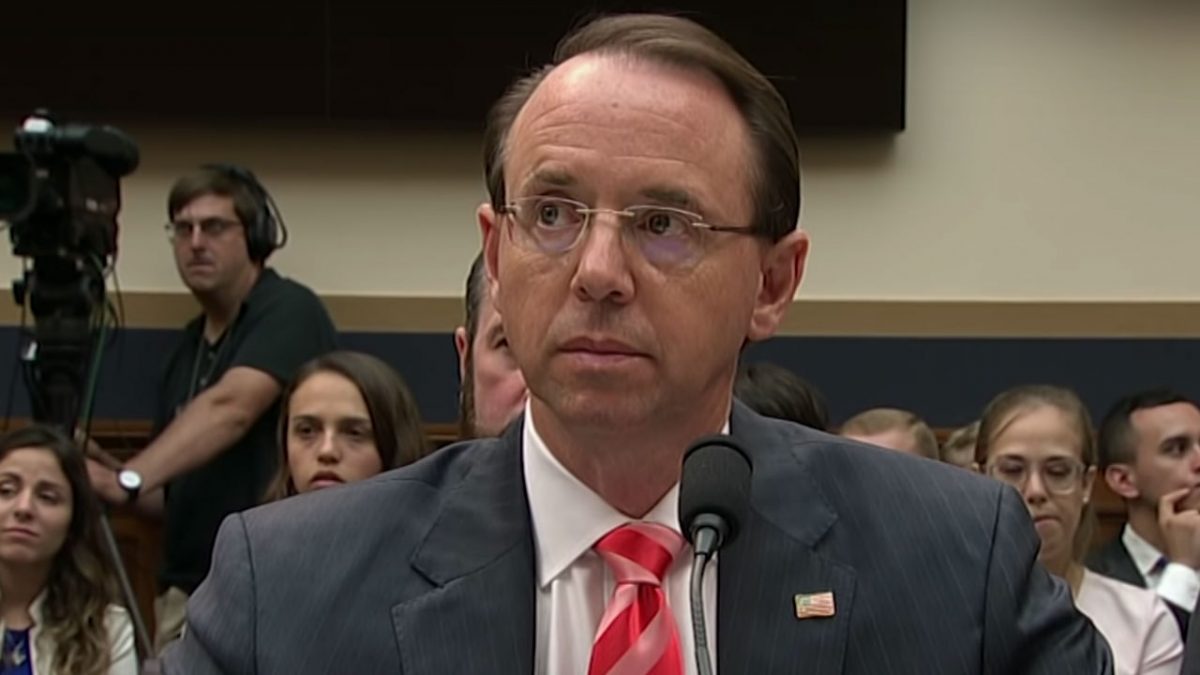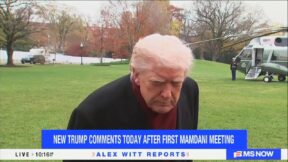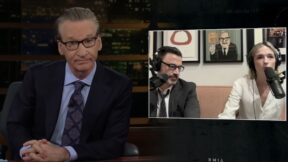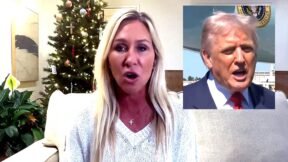Rod Rosenstein Reportedly Curtailed FBI Counterintelligence Probe Into Trump’s Personal, Financial Russian Ties

A new report says former Deputy Attorney General Rod Rosenstein secretly worked to “narrow” the investigation of Russia’s 2016 election interference from delving into President Donald Trump’s personal connections to Russia.
Earlier this month, the Republican-led Senate Intelligence Committee released an extensive report outlining the Trump campaign’s connections to Russia from back in 2016, plus the counterintelligence concerns therein. On Sunday, The New York Times released an article — with reporting from an upcoming book by correspondent Michael Schmidt — saying Rosenstein prevented the FBI from conducting a full investigation on Trump, which stopped them from investigating his personal and financial ties to Russia despite the concerns of counterintelligence officials.
From the report:
Mr. Rosenstein concluded the FBI lacked sufficient reason to conduct an investigation into the president’s links to a foreign adversary. Mr. Rosenstein determined that the investigators were acting too hastily in response to the firing days earlier of James B. Comey as F.B.I. director, and he suspected that the acting bureau director who approved the opening of the inquiry, Andrew G. McCabe, had conflicts of interest. Mr. Rosenstein never told Mr. McCabe about his decision, leaving the F.B.I. with the impression that the special counsel would take on the investigation into the president as part of his broader duties.
The article recounts that Rosenstein told Robert Mueller to conduct a criminal investigation as the former special counsel looked into alleged collusion between the Trump campaign and Russia. These parameters allowed Mueller to investigate crimes, but not national security threats, and he would need more authorities and resources from Rosenstein to expand the investigation. Rosenstein reportedly did not tell the FBI he was curtailing the investigation, and McCabe said that if he had known, he would’ve had the FBI launch it instead.
“It was first and foremost a counterintelligence case,” McCabe told the Times. “Could the president actually be the point of coordination between the campaign and the Russian government? Could the president actually be maintaining some sort of inappropriate relationship with our most significant adversary in the world?”




